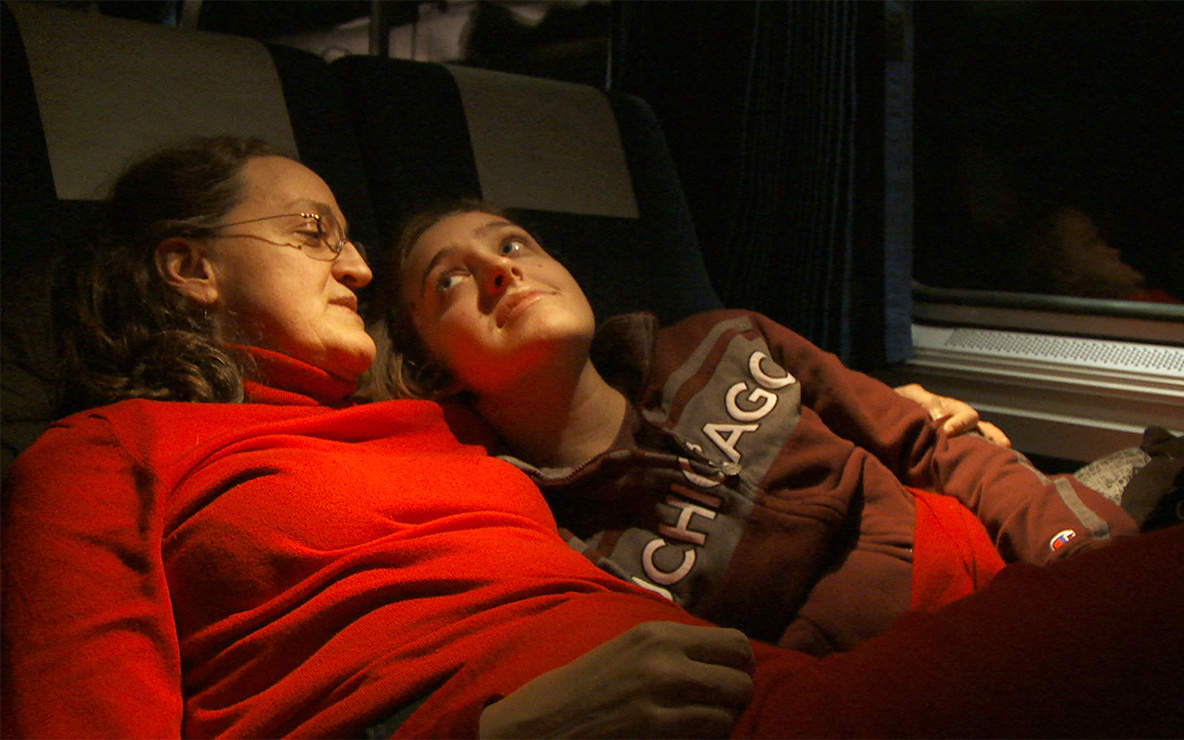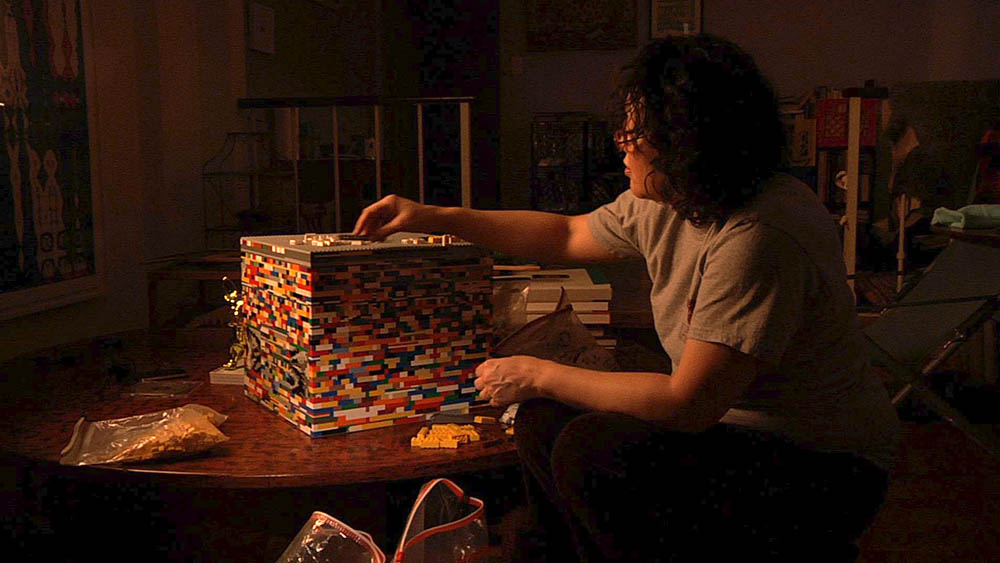Doc10 (April 1-3, 2016): A preview
 Scott Pfeiffer
Scott Pfeiffer  Wednesday, March 23, 2016 at 05:10PM
Wednesday, March 23, 2016 at 05:10PM 
There’s an exciting new nonfiction festival coming up in Chicago at the Music Box Theatre over the weekend of April 1-3. I’m talking about DOC10, the inaugural film festival of Chicago Media Project, which bills itself as the “premier Chicago non-profit organization supporting social impact media.” Its self-proclaimed mission is to create and distribute media that will "trigger social change."
For their first film fest they've hand-picked 10 films, all completed in the last year or even more recently, and all of which will be getting their Chicago premieres over the weekend. I have had a chance to review five of them. Each is something special.
The fest's cornerstone is new work by heavyweights of the form. While I did not, at press time, get a chance to preview the new one from Werner Herzog, Lo & Behold: Reveries of the Connected World, I was able to review the wonderful last film from cinema verité legend Alfred Maysles, In Transit.
Actually, it occurs to me that by bringing together such philosophically opposed work—Herzog is famously an opponent of cinema verité, instead calling in his famous “Minnesota Declaration” for an "ecstatic truth" which can only be reached through "fabrication and imagination and stylization"—the fest makes good on its promise to "present the full spectrum of current nonfiction filmmaking."
Also on the slate is the new film from Barbara Kopple, forever enshrined in documentary/labor-struggle history for Harlan County, USA. She returns with a music documentary, MISS SHARON JONES! Though it was unavailable for preview, I look forward to it. I love a good music doc, and Jones seems like a great subject for one.
As I watched, a theme emerged--reinvention. The idea that you go somewhere else, become someone else. We tend to think of this as an American dream. However, like all the best films, the pictures at DOC10 really tap into something universal.
Check out the Music Box's website for showtimes.
In Transit

Here is the final film by legendary "direct cinema" pioneer Albert Maysles, who was once called "the best American cameraman" by no less than Jean-Luc Godard, and who died last year at the age of 88. (Maysles shared his last directing credit with Nelson Walker, Lynn True, David Usai, and Ben Wu.) Here, he takes his camera aboard the Empire Builder train on its three-day journey from Chicago to the Pacific Northwest. Rolling across the country, we feel a sense of freedom emerge. Yet the land is not romanticized or mythologized. Its natural beauty is simply observed, quietly, as was the custom for Maysles, a lifelong proponent of the “fly on the wall” approach. Inside, the camera moves from story to story. Quietly interwoven, they create a tapestry of Americans at turning points in their lives. There is a senior who is just returning from meeting the daughter she gave up for adoption some 40 ago, and tells a harrowing tale of a narrow escape from her abusive husband. A young man is on his way to his girlfriend, surprised by how head-over-heels in love with her he finds himself. A bit of suspense is generated by the presence of a pregnant young woman, who may go into labor at any moment. A mother and daughter huddle together: one says to the other, there’s just the two of us, looking out for each other. They must have known the camera was on them, and yet it feels so private. Only a cameraman like Maysles could have recorded this kind of privileged moment, and it vindicates his self-effacing approach all by itself. (76 m)
Sonita

Sonita dreams of being a rap superstar like her heroes, but her path to fame is strewn with even more obstacles than most. Having fled the Taliban, she is an Afghan refugee living in Tehran. Adhering to Afghan tradition, her mother is bent on selling her as a bride. “All Afghan girls have a price,” she says. In response, Sonita makes a visually shocking protest video for her supercharged rap, “Bride for Sale,” performing in a bridal veil, her face bruised and battered. Like the most urgent rap, her song makes us feel like everything is on the line, and for her it really is. Or is it? Sonita often wears an unlikely smile, which does not go unnoticed by some of the people trying to help her. As one woman avers when Sonita is out of earshot, if someone is really in trouble they don’t smile like that--prompting another to reply, do you think she’s acting? (There is, in fact, a performative aspect to even the scenes with her mother). In fact, after some initial demurrals, the director herself, Iranian filmmaker Rokhsareh Ghaem Maghami, gets involved unabashedly in the proceedings. She even helps to arrange the events she is putatively capturing. And you know what? More power to her, I say. Maghami helps Sonita plot her escape to the United States. This involves traveling back to Kabul to retrieve her birth certificate, with no guarantee she will get back out. The irrepressible Sonita is a character I will not soon forget, and her movie is an invigorating feminist broadside. (71 m)
Missing People

This absorbing film by David Shapiro seems, at first glance, to be the story of a middle-aged woman, Martina Batan, who hasn’t slept well since 1978, when she was 18--the year persons unknown murdered her teenage baby brother. We soon learn that this haunted woman is an accomplished art dealer by profession. Back in the halcyon days of punk, she moved to New York City and reinvented herself. The story follows two strands: in one, she hires a private investigator to re-open her brother’s case. In the other, she tries to gain mainstream acceptance for a late outsider artist named Ray Ferdinand, whose ultraviolent art chronicled the demimonde of New Orleans street crime. Something in his work speaks to her. We meet his sisters, initially wary of Batan's interest, who indicate their brother's own relationship to street life was some combination of acting and deft manipulation of signifiers, as well as an all-too-real drug addiction. A surprise turn late in the film shifts the meaning of the idea of “missing people,” and causes us to think about leftover pieces to the puzzle that is the past. If the picture that emerges is more troubling than never knowing at all, is it more of a mercy to forget, or to remember? (81 m)
Hooligan Sparrow

"If anything happens to me, please come looking for me." This chilling line is spoken directly into the camera by director Nanfu Wang. She throws herself right into the fray in this gripping look at women’s rights activists in China. Hooligan Sparrow is the sobriquet of a brave women’s rights activist who is also something of a performance artist. She famously went to work in a brothel herself, offering sex for free in a bid to publicize exploitation of women and children—to offer herself in their place. Nanfu Wang joins Sparrow and other advocates on a journey to Hainan Island, where scandal is brewing. A principal and a government worker were caught shepherding six young girls into a hotel room. This is the appalling situation in China: school officials present kids to government officials as bribes. Almost immediately, the crew gets in trouble with the secret police, but Sparrow refuses to be silenced. You can kill me, she says, but you can’t kill the truth. This documentary can be as scary as a “found footage” horror film, but Nanfu Wang’s footage has had to traverse many more than the usual hurdles on its journey to reaching us. As she puts it, when you are repressed and defenseless, the only thing you can do is to document the atrocities. (Human rights lawyer Wang Yu, a key member of Sparrow’s brave crew in this film, was arrested in July. She remains imprisoned.)(84 m)
Uncertain

I have a lot of affection for Ewan McNicol and Anna Sandilands's lyrical film, which takes us down to the bayou of Caddo Lake and the teensy town of Uncertain, Texas (pop. 94). We first see it at night, and the insects are roaring. We glide through the swamps in the early morning mist. Uncertain is “mother’s nature’s favorite place,” as one local observes. “It's heaven, and home, and a little bit of hell.” It’s also dying. Caddo Lake is being choked by vegetation, a creeping crud straight out of a sci-fi film. We get to know a few denizens. An ex-felon with a dry sense of humor is obsessed with hunting a wily wild hog with “a head like a horse,” Big Ed. He pursues Ed by night with a single-mindedness usually reserved by Ahab for Moby Dick. We meet an aimless, affable kid, a very funny guy. With nothing to do, he struggles with drink, until he determines to get out of dodge and start a new life in Austin. An African-American senior citizen, a fisherman, glides through the bayou and hangs out with locals at the bait shop, where they look after him. It turns out he has a dark event in his past, just like the boar hunter. Each of us struggles with a dark second face, the enemy within. This moving film is about healing and the hope that, as one man puts it, the good we do in life will outweigh the wrong. (82 m)


Reader Comments